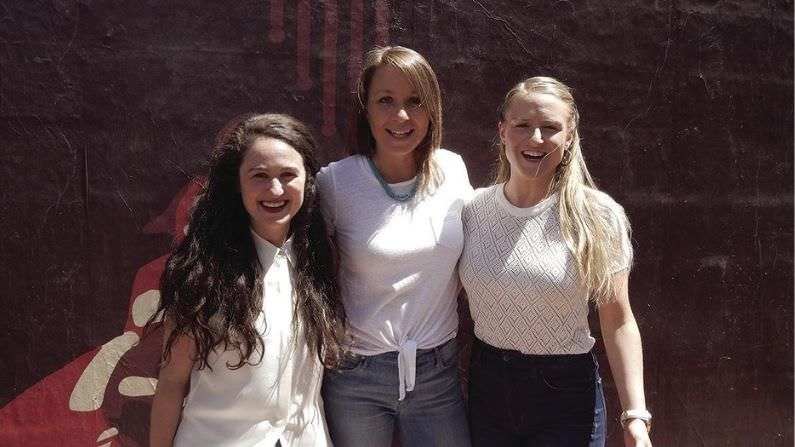This story is part of a collaboration between Rocky Mountain Community Radio and the Solutions Journalism Network highlighting housing solutions across the Mountain West.
In 2019, three Telluride locals identified what they saw as a problem.
Pepper Raper-Contillo was one of them.
“We see our town is just bleeding people – and wonderful people that are volunteers, and great workers, and wonderful community members – and people can’t find housing,” she says.
The Trust for Community Housing, a local housing non-profit, estimates there are currently fewer than five housing units on the market for rent, and affordable housing projects in the area currently have waitlists over 100 people long each.
So, Raper-Contillo and her friends decided to put democracy in action to do something about it.
“We decided, ‘hey, let’s tax the problem and turn the problem into a solution’,” Raper-Contillo says.
That “solution” was a citizen’s initiative ballot measure.
“The citizen’s ballot initiative we did was to put an excise tax on short-term rentals within the town of Telluride. We proposed a 2.5 percent excise tax,” she notes, “and that money was specifically earmarked for the affordable housing budget of town.”
The measure was aimed at short-term private rentals like Air BnB and VRBO, and excluded hotels, and commercial accommodations. Those short-term rentals, Raper-Contillo says, is contributing to local residents losing their long-term housing. Roughly 35 percent of Telluride’s housing stock is currently short-term rentals that’s up from about 20 percent five years ago.
That fall, the measure passed with 56 percent of the vote. The tax went into effect in January 2020.
In the first year Telluride collected just over $400,000 in tax revenue. In 2021, Telluride Mayor DeLanie Young anticipates the Town will collect $800,000.
She says that funding will help float a number of construction projects coming down the pipeline. The Town of Telluride is currently building a 30-unit rental project, and is planning to break ground on two other housing projects within the next year – adding another 30 to 50 units of housing.
“You can never really have enough dedicated funding sources for something that is at this level of crisis. We just need to keep our eye on the goal, which is to get as many units built as quickly as we can,” says Mayor Young.
And for Raper-Contillo, housing efforts related to the tax are “essential” to keeping the community sound. For one, she says, the lack of affordable housing discourages people from starting new businesses in Telluride.
She says, “they don’t want to commit to anything because they don’t know at what point they might get kicked out of their housing and have to move town.”
Mayor Young adds housing is more than just a roof over your head.
“It has to do with your mental health. It has to do with economic health for the region,” Young says, “housing is, if you will, the hub of the wheel and all of the spokes that come off are related to what that stable housing can provide to the entire community – for not only the employees who live in it, but the businesses where they work, the schools where their children attend, etc. etc.…”
Now, the idea for a short-term rental tax didn’t appear out of thin air.
Other mountain towns, including Crested Butte provided a roadmap for what the tax could look like in Telluride. Voters there passed a tax on short-term rentals that took in 2018.
Dara MacDonald, Town Manager for the Town of Crested Butte, says “having a defined revenue steam that’s been pretty consistent these past few years is a great benefit for the community and the affordable housing fund. It’s certainly gives us the stability to do things that we couldn’t necessarily plan on being able to do in years prior.”
MacDonald notes the town collects about $400,000 a year from the tax – which goes back into the town’s affordable housing fund.
“It certainly has not impeded rentals,” MacDonald says, “We’ve just continued to see growth in the revenue numbers we’re receiving.”
But MacDonald and Raper-Contillo recognize the tax is just one element.
“It’s not enough. We still, like Telluride, have an uphill battle to be able to secure sufficient housing for our local housing,” says MacDonald.
“This is one small puzzle piece of many actions we can take. Some say 2.5% wasn’t enough to make it worth is, so we shouldn’t have done it at all,” notes Raper-Contillo, “but if you look at it, at the end of the day, it’s raising funds that were not there before.”
And now, more locals are stepping in again. A new citizen’s initiative to cap the number of short-term rentals in Telluride is working its way to the ballot this fall.





